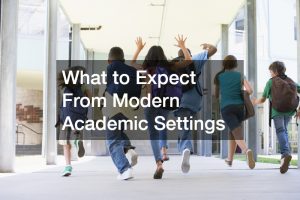- Nonprofit organizations and government offices offer resources and programs to help families choose the best education option for their children.
- Parents can use these resources to research private and public school districts, explore magnet or charter schools, and access homeschool curriculum options.
- Financial aid and scholarship programs are available to ease the cost of tuition fees and other educational expenses.
- Parenting workshops provide parents with tips and strategies on how to support their child’s education.
- Career counseling helps students make informed decisions about their future career paths.
Education plays a crucial role in determining the success of your child’s future. As a parent, choosing the best education option for your child can be a daunting task. With so many educational institutions out there, deciding which one best suits your child’s needs and abilities can be overwhelming. Luckily, there is help available for families to make informed decisions about education. Here’s how nonprofit organizations and government offices have resources and programs available to assist families in the decision-making process.
Assistance with School Selection
Choosing the right school for your child can be overwhelming, especially if you are new to an area or are unfamiliar with the educational options available to you. Nonprofit organizations can help you research and gather information about the schools in your area. Here are the most common types of options for parents:
Private Schools
Private schools typically provide a more tailored and rigorous educational experience than public schools but tend to cost more. Nonprofits can help you research the different private school options in your area and decide which one is best for your child. Meanwhile, government offices can provide information on voucher programs or tax credits available to you as a parent.
Public Schools
Public schools are also an option for parents looking for a more cost-effective form of education. Nonprofit organizations can provide information on different public school districts, including the quality of education they offer and their academic performance records. Government offices can also help you explore the possibility of magnet or charter schools in your area.
Home School Programs
Homeschooling is becoming increasingly popular as a form of education, allowing parents to choose what and how they teach their children. Nonprofits can provide parents with information and resources on the different homeschool curriculum options available to them and help them decide which one is best for their child. Government offices can also partner with an effective home school program in your local area.

Financial Aid and Scholarship Programs
Financing education can be a challenge for many families. Nonprofit organizations and government offices provide financial aid and scholarship programs to help families with financial constraints.
These programs offer funding that can cover tuition fees, academic materials, and other expenses related to education. Financial aid and scholarship programs can, in many ways, help make education more accessible and affordable for many families.
In some cases, a nonprofit may also offer after-school tutoring programs or mentoring services in a particular subject area. These programs help students who may be struggling academically to catch up and excel academically with no added cost.
Parenting Workshops
Nonprofit organizations and government offices also offer parenting workshops to help parents support their child’s education. These workshops provide guidance and opportunity for parents to gain insight into the educational experience and share their concerns with other parents. Here are some things you can learn at these events:
Encouraging Educational Success
These workshops provide parents with tips and strategies on how to encourage their child’s educational success. You can learn how to develop effective communication techniques between you and your child and set achievable goals for them.
Navigating Conversations With Teachers
These workshops also help parents navigate and effectively communicate with teachers. You can learn how to ask the right questions, understand the grading and assessment system, and develop a constructive relationship with your child’s teacher.
Providing a Supportive Learning Environment at Home
Finally, these workshops offer insight into how to provide a supportive learning environment at home. You can learn the importance of setting boundaries and expectations, developing a positive relationship with your child, and encouraging them to take ownership of their educational journey.

Career and College Counseling
One critical decision that students must make when approaching graduation is choosing between entering the workforce or going to college. Nonprofit organizations and government offices provide career counseling services to help students make informed decisions about their future career paths.
By providing students with career assessments and knowledge of job prospects, students can explore and determine the most suitable career options. For instance, if a student is unsure of whether they should pursue an engineering degree or join the military, these counselors can offer guidance on which path would lead to more successful opportunities.
Additionally, college counseling helps students navigate college applications, requirements, scholarships, and other opportunities to ensure that they are well-prepared for their college experience.
Nonprofit organizations and government offices play a vital role in helping families choose the best education option for their children. With the assistance of school selection, financial aid, scholarship programs, academic tutoring and mentoring, parenting workshops, and career and college counseling, nonprofits and government offices provide resources and programs that can help support your child’s education. By partnering with nonprofit organizations and government offices, families can ensure that their child receives a quality education, regardless of their financial or educational background.



